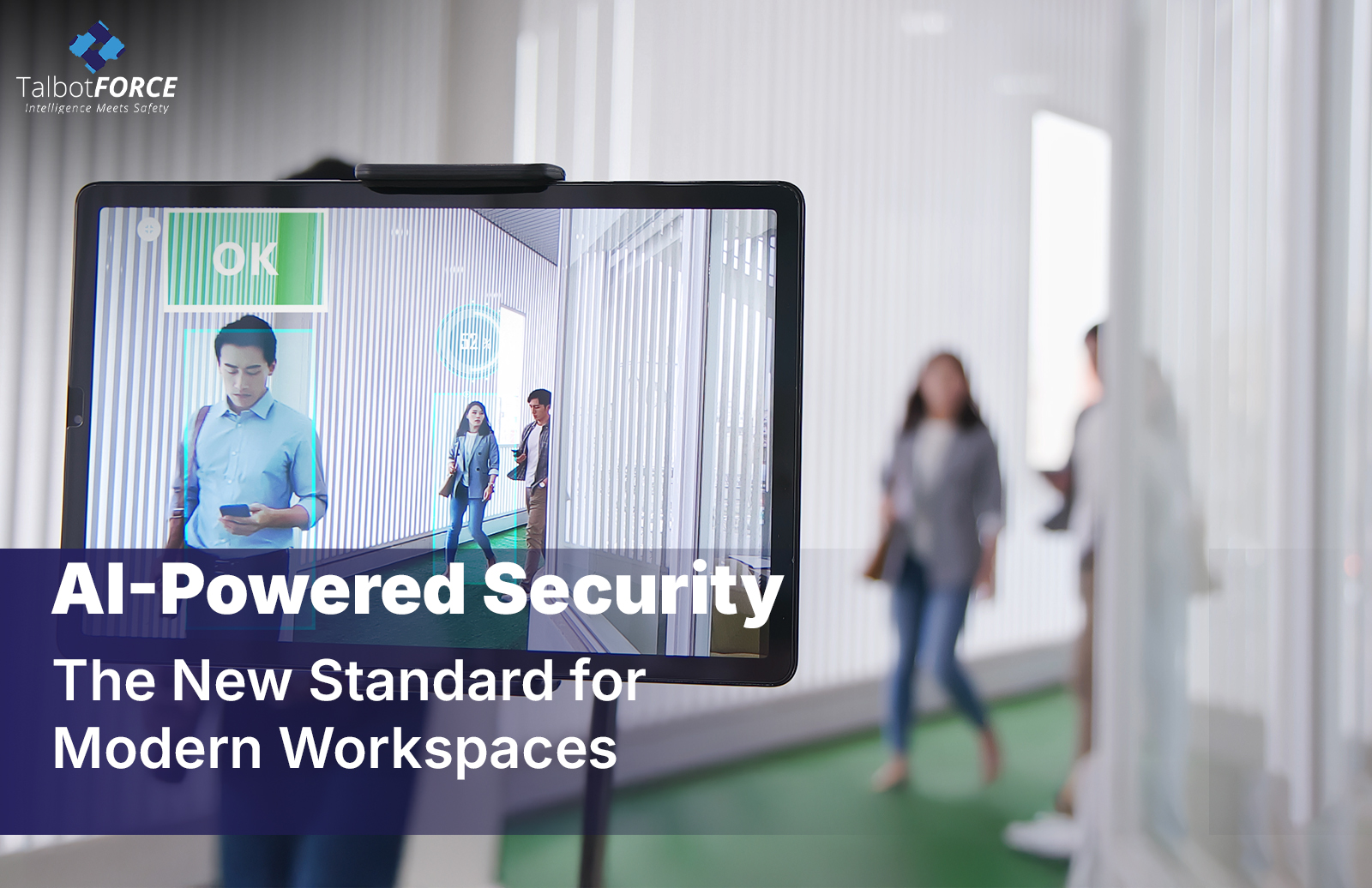AI-Powered Security: The New Standard for Modern Workspaces
The development of serviced workplaces, driven by the integration of smart security systems, marks a notable change in their design and performance. This evolution goes beyond technological progress, reshaping office spaces to improve efficacy, collaboration, and creativity.
The role of AI in serviced spaces is essential. It is launching new tools and building a responsive, dynamic, and customised work environment. AI-powered workplace security systems transform how experts are involved in their work environment.
However, along with productivity, these workspaces provide amazing psychological perks. The ambience of co-working can sometimes alleviate feelings of loneliness associated with remote jobs, support a sense of community, and foster psychological well-being by providing adaptable and flexible office spaces.
This blog discusses various benefits of artificial intelligence in a shared workspace. It also highlights how AI-enabled modern workspace security enhances decision-making, efficacy, and personalisation, transforming office design and collaboration.
The Advancement of Serviced Workspaces
Now, co-working spaces are no longer just free coffee and flexible desks. Automation and technology in offices have changed these places into adaptive, intelligent environments that serve various work styles.
Corporate teams and entrepreneurs now look for more than just a workstation. They want to witness an environment where technology smoothly integrates with their requirements in the office space.
Modern workspaces are made for the future using smart security systems, automated access control, high-speed internet, cloud-based digital collaboration tools, and AI-enabled office space management systems.
This automation and AI-powered workplace security makes coworking more effective and ensures that professionals can work better and brighter.
How AI-Powered Smart Security Systems Benefit Modern Workspaces
1. Digital tools and high-speed connectivity
Technology is at present essential in shared offices. Technological advancements have become the new standard for modern workspaces. Some digital tools, including communication, project handling, and collaborative tools, allow employees to communicate efficiently.
Zoom, Trello, and Slack enable employees to interact efficiently, work on time, and coordinate tasks. Shared workspaces prioritise high-speed internet solutions with backup networks. Such networks ensure seamless virtual collaboration and continuous workflow.
2. Improved security and data protection
Digital interactions are increasing day by day. Shared workplaces apply the latest cybersecurity protocols, such as firewall protection, VPN access, and encrypted Wi-Fi networks, to protect the sensitive information of staff members and clients.
AI-powered motion sensors and security cameras boost physical security. They also offer a secure environment for businesses and professionals working within co-working spaces.
The rise of automation and smart infrastructure
Modern workspaces use innovative access systems like biometric authentication, keyless entry, and mobile software-based check-ins. Such systems ensure easy and secure entry for members. IoT (Internet of Things) gadgets enable office space efficacy by automating temperature control, lighting, and energy consumption.
These IoT-powered office spaces make an environmentally friendly and comfortable work environment. Modern office spaces use AI to optimise seating arrangements, assess occupancy data, and boost space usage, offering members a smooth co-working experience.
1. Smart decision-making
AI can give important information and predictions by assessing extensive data sets, which promotes strategic decision-making. It allows business professionals to know market trends and understand client behaviour patterns. AI enables professionals to make data-driven, informed decisions, lower risks, and seize opportunities.
2. AR and VR solutions
Virtual Reality (VR) and Augmented Reality (AR) technologies allow deeply engaging online meetings. This makes virtual collaboration more efficient and immersive. The modern workspaces provide smart meeting rooms equipped with voice recognition, interactive whiteboards, and AI transcription solutions. Such solutions enhance productivity and organise discussions.
3. Blockchain security for flexible payment
Blockchain technology provides potent solutions for secure and transparent transactions. Businesses also use this technology to explore secure contract agreements, safe payment processing, and transparent membership handling. This technology will transform data protection systems and co-working spaces in the future.
AI can assess member usage patterns and recommend customised membership plans. Using this flexible technology, members only need to pay for the services and space they can find. This makes co-working a more alluring and reasonable choice for businesses.
Closing Words
The co-working industry is experiencing a tech advancement. This progress is revolutionising the way professionals innovate, connect, and work. From AI-driven automation to smart office spaces, shared offices are no longer only flexible desks.
Modern workspaces offer high-tech ecosystems along with smart security systems. As technology progresses, co-working places will stay at the leading edge of digital advancement, providing experts with an engaging, effective, and future-ready work environment.
